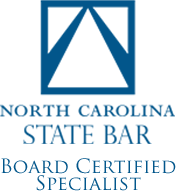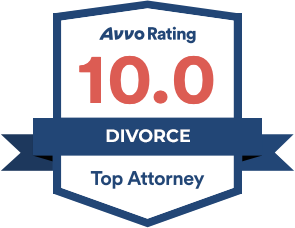
Charlotte Guardianship Lawyer
Navigating Guardianship in North Carolina
At Miller Cushing Holladay PLLC, we are your dedicated team of legal professionals committed to serving the Charlotte community in matters related to guardianship. We understand that navigating the complex world of guardianship can be daunting, and that’s where we step in. As leading Charlotte guardianship lawyers, we provide you with the expertise, support, and guidance you need to make informed decisions regarding guardianship matters in North Carolina.
Contact a skilled Charlotte guardianship lawyer today for a free consultation.
Call 980-321-5590 or reach out online to start protecting your loved ones.
What Is Guardianship?
Guardianship is a legal relationship that arises when a court appoints an individual or entity to care for someone who cannot manage their personal or financial affairs due to incapacity. This person who is deemed incapacitated is often referred to as the “ward.” Guardianship is a crucial legal tool that ensures the well-being and protection of individuals who cannot decide independently. It involves making decisions related to medical care, housing, finances, and more, always with the ward’s best interests in mind.
Guardianship can be sought for minors and adults. For minors, it typically pertains to children whose parents cannot provide proper care. For adults, guardianship often arises when they face physical or mental health challenges that render them unable to make decisions in their best interest.
What are the Different Types of Guardianships in NC?
In North Carolina, several types of guardianship are tailored to specific circumstances. Understanding the distinctions between these forms of guardianship is essential. Here are the primary types:
- Guardianship of the Person: This type of guardianship involves making decisions about the ward’s well-being, including healthcare, living arrangements, and day-to-day care. The person’s guardian ensures that the ward’s physical and emotional needs are met.
- Guardianship of the Estate: When the ward has assets, property, or financial interests, guardianship of the estate is appointed to manage the ward’s financial affairs. This includes handling the ward’s income, assets, and financial obligations.
- General Guardianship: General guardianship encompasses the person and the ward’s estate, giving the guardian authority over personal care decisions and financial matters. This is typically necessary when the ward cannot manage any aspect of their life.
- Limited Guardianship: A limited guardianship grants the guardian specific authority over certain aspects of the ward’s life while leaving the ward with decision-making authority in other areas. This is often used when the ward can handle some aspects of their life but needs help in other areas.
- Temporary Guardianship: Temporary guardianship is established for a specific period, often during an emergency or while a more comprehensive guardianship case is pending. It provides immediate protection for the ward’s best interests.
- Standby Guardianship: Standby guardianship allows for the appointment of a guardian to take over when a parent or guardian cannot fulfill their responsibilities. This type is primarily used to ensure continuity in caring for a child if a parent or guardian is temporarily or permanently incapacitated.
Why Hire a Charlotte Guardianship Lawyer?
Navigating the guardianship process can be complex and emotionally challenging. A Charlotte guardianship lawyer can provide valuable assistance throughout the process by offering guidance, preparing necessary documents, and representing your interests in court.
Some key reasons to hire a Charlotte guardianship attorney include:
- Navigating Legal Complexities: Guardianship law can be complex, especially when it involves contested proceedings or multiple interested parties. A Charlotte guardianship lawyer will guide you through the legal process and ensure that all paperwork is filed correctly.
- Protecting Your Interests: A lawyer can ensure that your rights and the best interests of the ward are protected throughout the guardianship process.
- Handling Disputes: If family members disagree about the guardianship, a lawyer can help resolve disputes and represent your interests in court.
- Ensuring Compliance: Once guardianship is granted, a lawyer can assist with ongoing reporting requirements and ensure that you remain in compliance with the court’s orders.
Call Miller Cushing Holladay PLLC today at 980-321-5590 or contact us online to schedule a meeting with our guardianship attorney in Charlotte

Becoming a Legal Guardian in North Carolina
Who Can Be a Guardian?
In North Carolina, any adult who is willing and able to take on the responsibilities of guardianship can be appointed as a guardian. However, the court typically prioritizes the wishes of the individual seeking guardianship and their family members. A guardian must demonstrate the capacity to handle the duties of the role and act in the best interest of the ward.
In some cases, family members may be the first choice for guardianship. However, the court will also consider other factors such as the proposed guardian’s relationship with the ward, their ability to provide proper care, and any history of abuse or neglect.
What is the Guardianship Process in North Carolina?
Becoming a legal guardian in North Carolina is a process that requires adherence to the state’s legal requirements. At Miller Cushing Holladay PLLC, we are here to guide you through this intricate process. Here are the essential steps to becoming a legal guardian:
- Petition for Guardianship: The process typically starts with petitioning in the appropriate North Carolina court. This document outlines the reasons for seeking guardianship and provides information about the proposed guardian and the ward.
- Notice to Interested Parties: Once the petition is filed, notice is given to interested parties, including family members, close friends, and the proposed ward. These parties have the opportunity to object to or support the guardianship.
- Guardian Ad Litem Appointment: In some cases, the court may appoint a guardian ad litem to represent the ward’s best interests. This independent party investigates the case and makes recommendations to the court.
- Court Hearing: A hearing is scheduled to evaluate the need for guardianship. During the hearing, evidence is presented, witnesses may testify, and the court will decide based on the ward’s best interests.
- Appointment of Guardian: If the court finds guardianship necessary, it will appoint a guardian, specifying the type of guardianship (person, estate, or both) and the extent of the guardian’s powers.
- Annual Reporting: Once appointed, guardians have ongoing responsibilities, including providing annual reports to the court on the ward’s well-being and financial status.
At Miller Cushing Holladay PLLC, we can provide you with the legal expertise and support you need throughout this process. Our Charlotte guardianship lawyers are well-versed in North Carolina’s guardianship laws. They can help you navigate the complexities of the legal system while ensuring that the ward’s best interests are protected.
What are the Duties and Responsibilities of a Guardian?
The duties and responsibilities of a guardian can vary depending on the type of guardianship. However, all guardians have a legal obligation to act in the best interest of the ward and provide for their physical, emotional, and financial well-being.
Some of the primary duties of a guardian include:
- Providing for the Ward’s Care: The guardian is responsible for ensuring that the ward has proper housing, food, and healthcare. This includes making medical decisions on behalf of the ward if they are unable to do so themselves.
- Managing the Ward’s Finances: If the guardian is also responsible for managing the ward’s finances, they must ensure that the ward’s assets are properly managed, bills are paid, and taxes are filed.
- Making Legal Decisions: The guardian may have the authority to make legal decisions on behalf of the ward, such as signing contracts or handling legal matters.
- Reporting to the Court: Guardians are required to submit regular reports to the court detailing the ward’s condition, the guardian’s actions, and any financial transactions made on behalf of the ward.
Contact Our Charlotte Guardianship Attorney Today
Guardianship is a crucial legal mechanism to protect individuals who cannot decide in their best interests. In North Carolina, various types of guardianships exist to address the unique needs of wards. Whether you’re seeking guardianship for a minor an adult, or managing the estate of a ward, it’s essential to understand the legal requirements and processes involved.
At Miller Cushing Holladay PLLC, we are your dedicated Charlotte guardianship lawyers, here to provide guidance, support, and expert legal representation. We understand that the journey through guardianship can be challenging, and we are committed to helping you make informed decisions that safeguard the well-being and best interests of your loved ones.
Contact Miller Cushing Holladay PLLC by calling 980-321-5590 today to schedule a consultation with our guardianship lawyer in Charlotte!

-
“Bethany was encouraging of questions and seems very knowledgeable”
– Jeremy Q. -
“Chris Miller and Brett Holladay were remarkable in their approach, plan and execution in my divorce case”
– Anupam P -
“I appreciate all he did to help”
– Elka J. -
“They were responsive to all of our concerns and really seemed to care about getting us the outcome that we wanted”
– Miranda M. -
“The ethics, personal client attention, and diligent client representation are well known within the local legal community.”
– Jenny H.
Contact Our Firm
Call 980-321-5590 or Fill Out this Form to Begin Your Case







